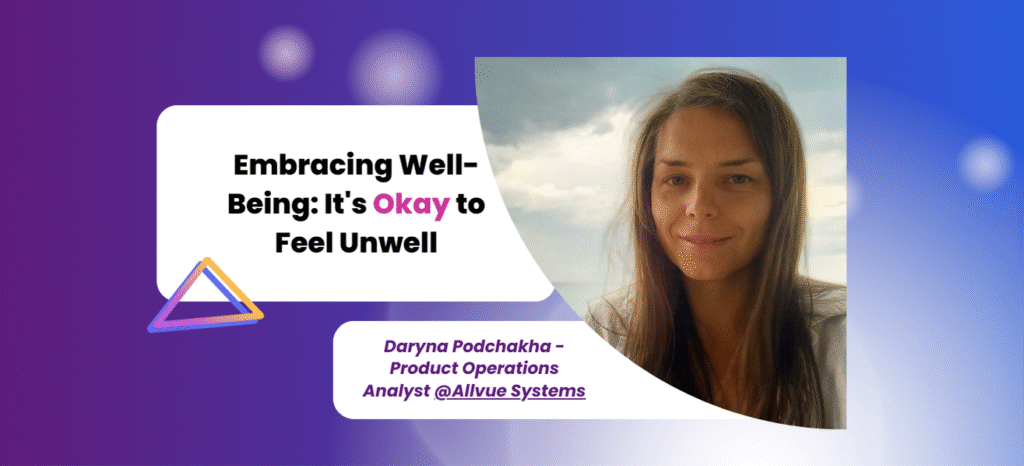|
Getting your Trinity Audio player ready…
|

Daryna Podchakha – Product Operations Analyst at Allvue Systems. Beyond her professional work, she is deeply passionate about promoting well-being and crafting meaningful insights to help individuals thrive in their personal and professional lives. She believes in the importance of balance, innovation, and purpose in achieving fulfillment.
In an era where happiness and positivity are often celebrated as the ultimate emotional goals, it’s essential to acknowledge something fundamental: it’s okay to feel unwell. Experiencing the full spectrum of emotion – joy, sorrow, frustration, and even despair – is a normal part of being human. Denying or burying negative emotions doesn’t make them disappear. Instead, they remain hidden within your soul, only to resurface later as deeper and more significant issues.
Understanding this truth reshapes the way we address our well-being. The focus shouldn’t be on feeling good all the time – that’s unrealistic – but rather on how we navigate through moments of emotional discomfort. Taking no action can spiral into continuous and deep depression. The key is to actively focus on the pathway out of the unwell situation, setting manageable steps toward improvement.
Steps to Address Moments of Feeling Unwell
1. Focus on Yourself and Your Current State of Mind
One of the first steps to healing is choosing self-awareness over comparison. Avoid the temptation to assess your life based on others’ circumstances because their stories and challenges are unknown to you. Concentrate on understanding your own emotions and the state of your well-being.
2. Acknowledge the Problem
Identify what has caused the feelings of unwellness. Reflect on recent events or patterns, and create a bullet-point list of things that have contributed to your low mood or stress. This exercise will reveal that drops in well-being often stem from multiple triggers across various aspects of life – work, relationships, household responsibilities, and more.
3. Analyze and Take Action
For each problem you’ve listed, think about actionable changes that can help.
- Unsatisfied with your job? Begin exploring new career opportunities or developing a path toward change.
- Drained by certain relationships? Reduce or avoid communication with people who negatively impact your energy.
- Overwhelmed by housework? Consider hiring help or investing in tools that save time. Simplify your routine, even if it means ordering takeout more often.
Making problems visible gives them a form that you can work with – and, most importantly, establishes the possibility for resolution. Frustration often stems from feeling trapped in an unsolvable situation. Shifting this perspective is a pivotal step toward restoring emotional balance.
The Joyful Counterbalance
Once you’ve taken steps to address the negatives, balance matters by introducing intentional happiness into your life. Create two lists:
- A small joys list of simple things that cheer you up immediately, like morning coffee, reading a favorite book, or sleeping in for two hours.
- A big joys list for larger activities that require planning, such as traveling, attending music festivals, or taking up new hobbies.
Focus on enjoying the smaller joys first, since they are accessible and effective in quickly improving your mood. These smaller moments of happiness act as a bridge to rebuilding larger, longer-term well-being aspirations.
Why It Matters
Ultimately, the biggest factor contributing to depression might not be the negative situation itself but the inability to envision a way out of it. A structured approach to self-reflection—not just uncovering the underlying causes of emotional discomfort but also actively resolving them—can profoundly shift your mental state.
By breaking down frustrations and blending problem-solving with joy-centered practices, you create a road map to ongoing well-being. Embrace feeling unwell as an opportunity to reflect, grow, and reset. Because life isn’t about never falling – it’s about knowing how to rise after each stumble.
